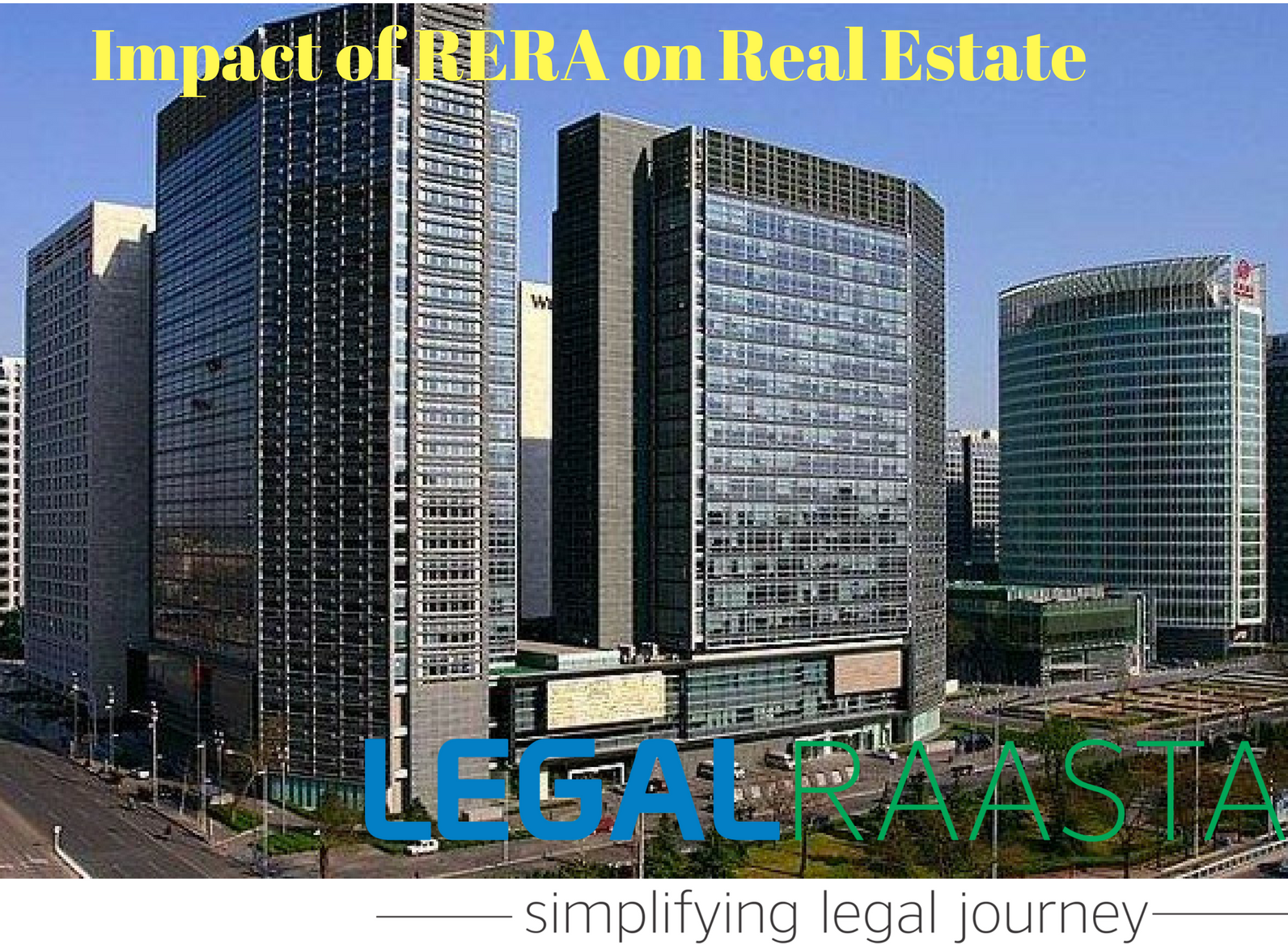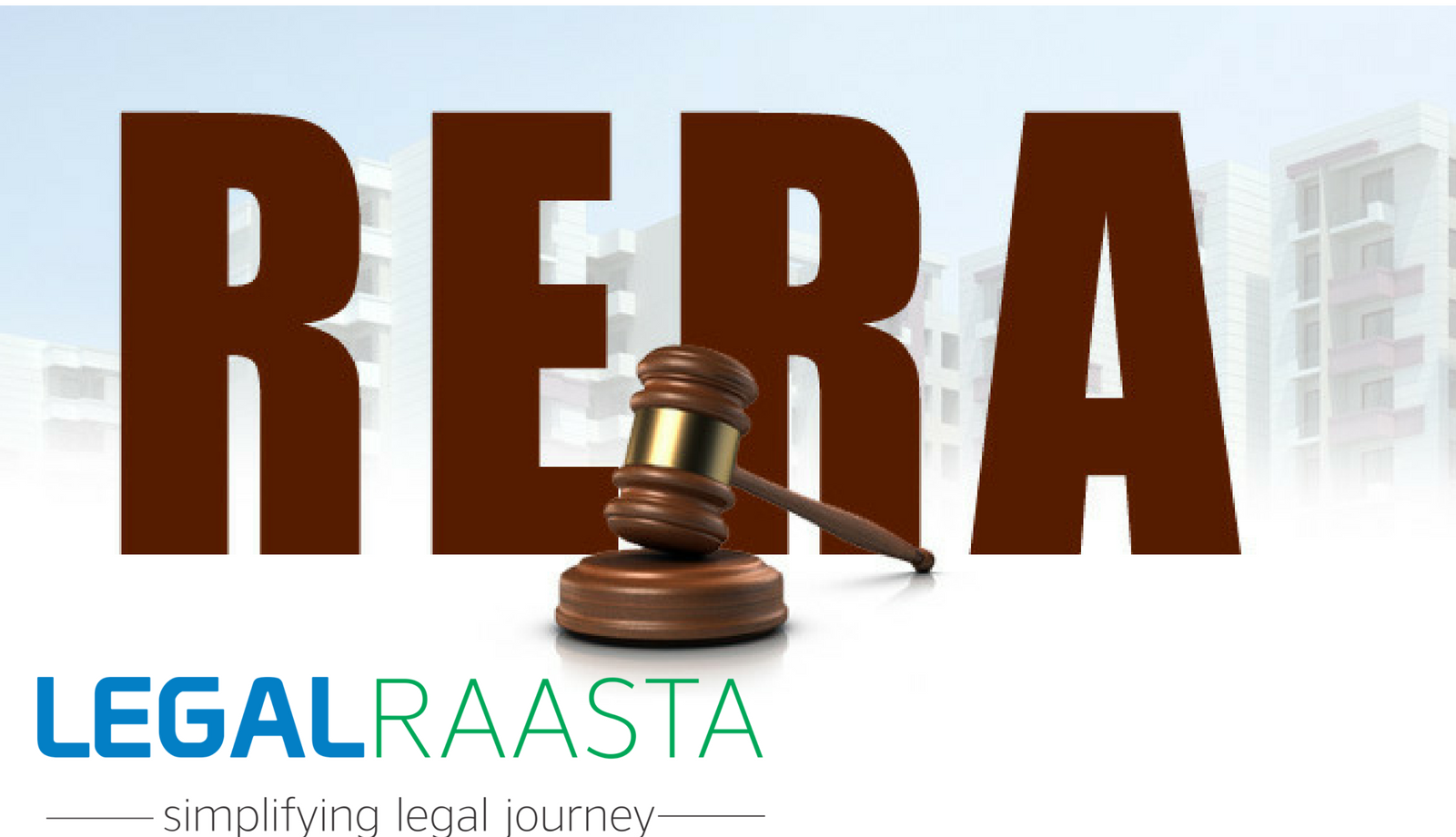Registration of Project under RERA
What is RERA?
The real estate sector in India is among one of the top contributors towards the GDP(Gross Domestic Product) along with employment generation. Surprisingly, however, despite being a huge contributor towards the GDP, real state sector had gone unregulated for a long period of time. In order to rectify the situation of an unsupervised sector, the Indian parliament sanctioned a legislation named RERA (Real Estate Regulation and Development Act, 2016) brought into effect on May 1, 2016. According to RERA registration rules, it is now mandatory for ongoing/future real estate projects under planning areas to be registered with the authorities. Furthermore, real estate agents need to register themselves as well as to facilitate sale/purchase of projects.
Real estate developers and plot owners filed a batch of writ petitions which criticized the legislation. The claim from developers and owners argued the constitutionalism of the RERA since they believed the process of implementation of the act state-wise and appointing state-level authority was arbitrary.
An esteemed panel of justices from Bombay CourtRajesh Ketkar and Naresh Patil re-assured that RERA is constitutional. They were quoted as saying “RERA needs to be closely monitored in years to come. RERA is not a law relating to only regulatory concerns but its object is to develop the realty sector particularly incomplete projects”. Read on this article on Analysis of RERA, to see a comprehensive assessment of the act.
RERA Registration Rules
In accordance with RERA registration rules, Section 3, all ongoing/future projects which fall under planning areas have to be registered by the ‘Promoter’ with Real Estate Regulatory Authority ‘Authority’.
This registration under RERA if not availed by “Promoter ” prohibits them from advertising, marketing, booking or offering to sell the said real estate project or any part of it.
Who can be classified as a “Promoter”? ( According to RERA)
-
Builder.
-
Developer
-
Development Authority
-
Society
-
Individual/Group who possess power of attorney from the owner of the land on which building or apartment is constructed or plot is developed for sale.
 RERA registration rules are helping regulate the real estate sector[/caption]
RERA registration rules are helping regulate the real estate sector[/caption]
What is classified as a Real Estate project?
Real estate project means the development of a building, converting an existing building or its part, development of land into apartments/plots for the purpose of selling. This encompasses all common areas, development works, improvements, and structures thereon, belonging to said building.
The terms “apartment” and “building” signify that RERA includes not only residential buildings but commercial buildings as well. RERA also does not distinguish between ongoing and future projects for registration procedures, both have to be registered according to set guidelines.
Exceptions to RERA registration
Conforming to Section 3 of RERA, there are 4 cases where a project does not require registration.
-
Certificate of Completion acquired before the commencement of the act. i.e. certificate of completion issued before the act is in effect.
-
Proposed land of development does not exceed 50 sq mt.
-
The number of apartments is not more than 8.
-
Repairs, renovations of existing structures that do not require marketing, advertising, and selling of any apartment or plot.
Documents for RERA Registration
-
PAN card of Builder
-
The balance sheet of builder and Income tax Returns (ITR) for the past 3 years
-
Disclosure of details like Carpet Area, Number of Floors and Parking Space.
-
Legal title of the land with proof
-
Rights, Title, Mortgage
-
Consent letter from the owner of the land if the builder is not the owner.
-
Project Details including Layout plan, Location, and Sanctioned plan
-
Ownership documents (Agreement of sale, proforma of allotment letter )
-
List of individuals involved (Architects, Engineers etc.)
- Documentation can vary according to the area of development subject to state government legislation
Procedure for RERA Registration
Following is a step-by-step procedure to successfully register your project under RERA.- File Application Forms with the all the appropriate documents mentioned above
- Recieve Registration number from the regulator. Produce this registration number in every sale record henceforth.
- Maintain Quarterly books of accounts, records, and transaction in relation to all transactions.
Consequences of Non-Registration
Section 59 of RERA clearly stipulates that in the case of non-registration will result in the following consequences.- A penalty of up to 10% of the estimated project cost
- If the default in registration continues, an additional 10% penalty of estimated project cost imposed
- Imprisonment of up to 3 years
- Penalty and Imprisonment both.
In conclusion, RERA attempts to make positive strides towards regulation of the real estate sector and speeding up pending projects.RERA registration, however, can be a taxing procedure to perform and could hinder the development process if not done correctly.
At LegalRaasta, we take pride in ourselves in providing top-notch, smooth, fast and easy processing solutions of RERA registration.
Shoot us an e-mail at [email protected].If you prefer a more personal touch, give us a ring at +91-








